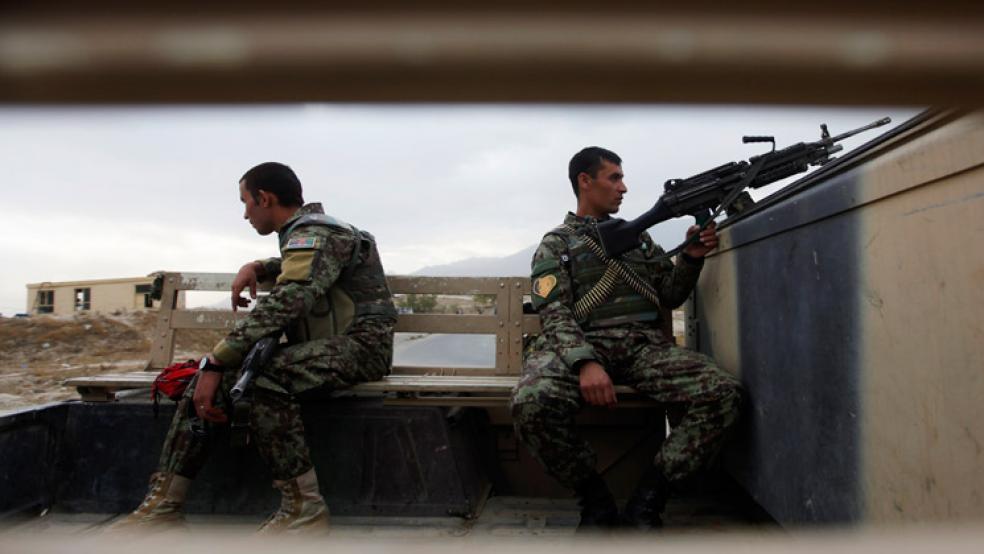The long-term security agreement between the United States and Afghanistan, agreed to Wednesday afternoon, raises more questions than answers. It’s not clear how many U.S. troops are going to stay in the country after the summer of 2014. It’s not clear how large a financial commitment the United States is making and whether the terms of the deal satisfy Afghan tribal elders that must approve it to move the deal forward.
According to retired Army Colonel Doug Macgregor, history provides a guide to what he expects to happen in Afghanistan. He expects the withdrawal Afghanistan to resemble the withdrawal from Vietnam.
Related: 12 Weapons That Changed Everything
Like the Vietnam withdrawal, the Afghan withdrawal has taken a number of years. In both of these wars, American soldiers continued to die in combat. However, now that the security agreement is in place, Macgregor said that Americans would largely disengage from fighting.
“When we went through the process of disengaging from Vietnam, commanders in the field issued specific orders that U.S. forces were to avoid combat with the enemy and contact if at all possible,” he said. “American people didn’t want to take casualties and did not support the [Vietnam] war. This is the same situation.”
He also dismissed that the idea that the United States would have a large military presence in the country for years.
“We’re going to get out. That’s not a mystery. We don’t want to lose anyone else. I’m sure there are orders in the field not to come into contact with the enemy,” he said. “I think that’s what we will do. We will stop operations of any kind that would lead to combat with the enemy.”
Macgregor said the entire security deal hinges on the United States halting combat operations. If operations continue, Afghan elders would never support it.
“If it’s not the end, it’s the beginning of the end,” he said. “I wish we would move the timetable up to 1 January.”
Related: Pentagon’s $1.5 Trillion Jet Punches Back
This scenario does not bode well for the future of Afghanistan. Within two years of the American withdrawal, communist North Vietnam took control of the south.
Germany found itself in a peculiar situation in 2001. The German Army was constitutionally prohibited from waging offensive war, but was obligated under NATO’s treaty to play some role in Afghanistan.
German military planners got around the constitution by saying its soldiers were in Afghanistan as a peacekeeping force. They were in control of Kunduz, a relatively peaceful and stable province in northern Afghanistan. German troops, like American troops under the new security pact, were supposed to be there in a strictly advisory role.
Yet despite their official status as peacekeepers, German troops engaged in combat when they came under fire. Some 35 German soldiers were killed while fighting, marking the first time German soldiers had been killed in a war zone since NATO’s late-1990s mission in Kosovo. Afghanistan marked the first time the Bundeswehr suffered significant combat casualties since the Battle of Berlin in 1945.
Top Reads from The Fiscal Times:
- Obama’s Security Deal Gives Karzai a Blank Check
- What That Sneaky Fee on Your Cellphone Means
- Time to Ditch Obamacare--a Plan to Rob Taxpayers



